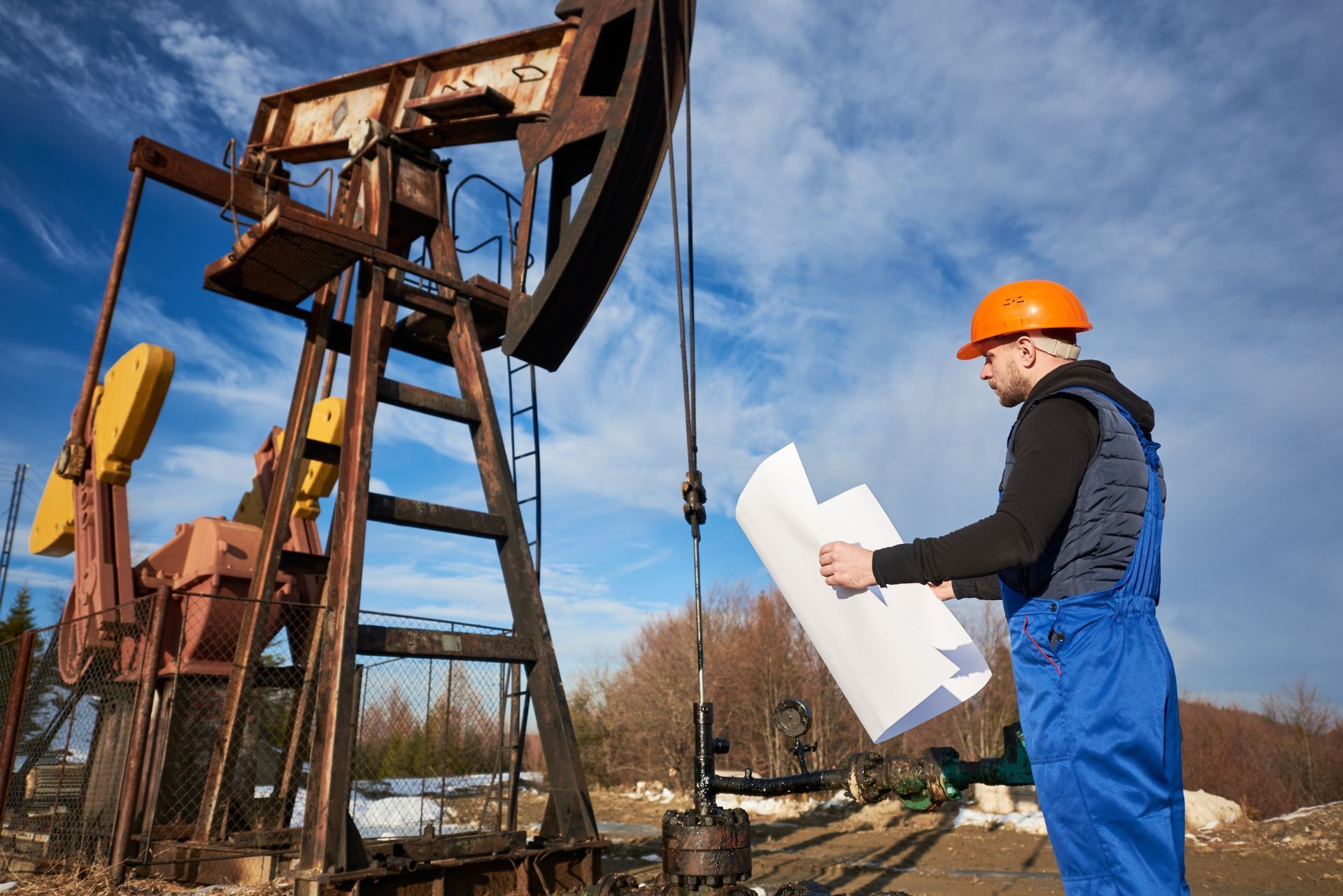Foreign Voluntary Workers Compensation Insurance For Oil, Gas, and Energy Businesses

or call us: (281) 823-8262
Top 3 Recommended Policies

The oil, gas, and energy industries are among the most hazardous sectors worldwide, with workers facing significant risks daily. For companies operating internationally, managing employee safety and ensuring proper insurance coverage is a complex but vital task. One critical component in this landscape is Foreign Voluntary Workers Compensation Insurance (FVWC). This specialized insurance protects employers from liabilities related to work-related injuries or illnesses of their employees working outside their home country.
Understanding the nuances of FVWC insurance is essential for businesses in the energy sector, especially given the high injury rates and evolving insurance market dynamics. This article explores everything you need to know about FVWC insurance, its importance in the oil and gas industry, and how companies can navigate this complex arena effectively.
What Is Foreign Voluntary Workers Compensation Insurance?
Foreign Voluntary Workers Compensation Insurance is designed to cover employees who are working outside their employer’s home country and are not covered by the local workers' compensation system. This insurance fills the gaps where local laws either do not provide adequate coverage or do not apply to foreign workers.
For oil, gas, and energy companies, whose operations often span multiple countries and involve expatriate workers, FVWC insurance is crucial. It ensures that employees injured abroad receive appropriate medical care and compensation while protecting the employer from potential lawsuits or claims that could arise from workplace injuries.
Without FVWC coverage, companies risk significant financial exposure, especially in countries with limited or no workers’ compensation frameworks. This insurance also helps maintain compliance with international labor laws and contractual obligations with clients and partners.
Moreover, the importance of FVWC insurance extends beyond mere compliance; it plays a vital role in attracting and retaining talent in a global marketplace. Employees are more likely to accept international assignments when they know they are protected in the event of an accident or injury. This peace of mind can lead to increased job satisfaction and productivity, as workers feel valued and secure in their roles. Additionally, companies that prioritize the safety and well-being of their international employees often enjoy a stronger reputation, which can be beneficial for business development and partnerships.
Furthermore, FVWC insurance can also include coverage for repatriation expenses, which are critical in the event that an employee needs to return to their home country for medical treatment or recovery. This aspect of coverage not only alleviates the financial burden on the employer but also ensures that employees receive the best possible care in familiar surroundings. In an increasingly interconnected world, having comprehensive insurance coverage for foreign workers is not just a legal obligation; it is a strategic advantage that can enhance a company’s operational resilience and global competitiveness.

Why FVWC Insurance Matters in the Oil, Gas, and Energy Sector
The oil and gas extraction industry is notably hazardous. According to research, the occupational fatality rate in this sector is 2.5 times higher than in construction and seven times higher than in general industry. This elevated risk profile makes comprehensive workers' compensation coverage indispensable for companies operating globally.
Between January 2015 and July 2022, over 2,100 severe work-related injuries were reported in the oil and gas extraction sector alone, with nearly 43% involving upper extremities. These statistics underscore the physical dangers workers face and the need for robust insurance solutions that extend beyond domestic borders.
Moreover, the complexity of oil and gas operations—ranging from drilling contractors to servicing teams—means that injury risks and compensation claims vary widely. For instance, drilling contractors have the highest lost-time claims rate, while servicing contractors incur the highest claim costs, highlighting the diverse insurance needs within the industry. The geographical locations of these operations also play a significant role; many projects are situated in remote areas where access to medical facilities can be limited, further complicating the response to workplace injuries.
Given these factors, FVWC insurance provides peace of mind to employers by covering injuries that occur overseas, ensuring employees receive timely care and compensation without the company facing unexpected liabilities. This type of insurance not only protects the workforce but also fosters a culture of safety and accountability within organizations. By investing in comprehensive coverage, companies can focus on their core operations while minimizing the financial risks associated with workplace accidents.
Furthermore, the implementation of safety training programs and adherence to strict regulatory standards can significantly mitigate risks in the oil and gas sector. Many companies are now prioritizing safety protocols, which not only reduce injury rates but also enhance their reputation in a competitive market. By demonstrating a commitment to employee welfare through proactive measures and adequate insurance coverage, organizations can attract and retain top talent, ultimately contributing to their long-term success.
For more detailed statistics on injury rates and claims in the oil and gas industry, see the
CDC report on severe work-related injuries in oil and gas extraction.
Key Features and Coverage of Foreign Voluntary Workers Compensation Insurance
FVWC insurance policies typically cover medical expenses, disability benefits, rehabilitation costs, and death benefits for employees injured or killed while working abroad. The coverage aligns with the benefits provided under the U.S. workers’ compensation system or the employer’s home country standards, whichever is more favorable.
One of the critical features of FVWC insurance is its ability to cover claims that local workers’ compensation laws do not address. In some countries, workers’ compensation systems may be non-existent, limited, or not applicable to foreign workers. FVWC insurance steps in to fill these gaps, ensuring comprehensive protection. This is particularly vital for multinational companies that deploy employees to various regions, as they can face a myriad of legal and regulatory challenges. By having FVWC insurance, employers can ensure that their workforce is safeguarded, regardless of the local legal landscape.
Additionally, FVWC policies often include liability coverage for employers, protecting them against lawsuits filed by injured employees or their families. This is particularly important in jurisdictions where litigation risks are high or where local laws allow employees to sue employers directly. The potential for litigation can be daunting, especially in countries with a reputation for aggressive legal practices. FVWC insurance not only provides financial backing in such cases but also offers peace of mind, allowing employers to focus on their core business operations without the constant worry of legal repercussions.
The insurance also supports employers in managing claims efficiently through insurer risk control services. Studies show that 73% of employers using workers’ compensation consultation services reported significant reductions in losses, demonstrating the value of proactive risk management alongside insurance coverage. These services often include risk assessments, safety training programs, and incident response planning, which are essential for maintaining a safe working environment abroad. By investing in these preventive measures, employers can not only reduce the likelihood of claims but also foster a culture of safety that benefits both the employees and the organization as a whole.
To learn more about the impact of insurer risk control services, visit this detailed study. Understanding these dynamics can help businesses make informed decisions about their insurance needs and risk management strategies, ultimately leading to a more resilient and responsible approach to global operations.
Challenges in the Workers Compensation Insurance Market for Oil and Gas
The insurance market for workers’ compensation in the oil and gas sector is currently facing several challenges that impact coverage availability and cost. Factors such as rising inflation, increased auto accidents, natural disasters, and “social inflation” have contributed to what is known as a “hard” insurance market. This environment leads to higher premiums and a reduced appetite for risk among insurers.
For businesses operating internationally, these market conditions translate into more expensive and potentially limited FVWC insurance options. Carriers are increasingly cautious, especially in high-risk sectors like oil and gas, where injury rates and claim costs are significant.
Despite these challenges, the workers’ compensation insurance market is expected to grow steadily, with forecasts projecting a compound annual growth rate (CAGR) of 6.15% from 2025 to 2032, reaching over $18.5 billion. This growth reflects ongoing demand for coverage as companies expand their global operations and seek to mitigate risks.
Understanding these market dynamics is essential for oil and gas companies to negotiate better terms and ensure continuous coverage. For a comprehensive overview of the current market state, see the Swiss Re report on the US workers' compensation insurance market.
Moreover, the oil and gas industry is uniquely susceptible to fluctuations in regulatory environments, which can further complicate the workers' compensation landscape. Changes in safety regulations, environmental laws, and labor standards can lead to increased compliance costs and necessitate more robust safety protocols. Companies must remain vigilant and adaptable, as these regulatory shifts can directly influence their insurance premiums and coverage options.
Additionally, advancements in technology are reshaping the risk landscape in the oil and gas sector. The integration of automation, artificial intelligence, and data analytics is not only enhancing operational efficiency but also improving safety measures. Insurers are beginning to recognize the value of these technologies in reducing risk, which may open up new avenues for premium reductions and more favorable policy terms for companies that invest in innovative safety solutions.

How to Secure the Right Foreign Voluntary Workers Compensation Insurance
Securing appropriate FVWC insurance involves several critical steps. First, companies must assess the jurisdictions where their employees will work and evaluate the local workers' compensation laws. This assessment helps identify coverage gaps that FVWC insurance needs to fill. Understanding the nuances of each jurisdiction is essential, as laws can vary significantly from one country to another, affecting everything from claim processes to benefit levels. For instance, some countries may have specific mandates regarding medical care or rehabilitation services that must be included in the insurance policy.
Next, it is vital to work with insurance brokers or carriers experienced in the energy sector and international coverage. These experts can tailor policies to meet specific operational risks and compliance requirements. They also assist in navigating complex claims processes and risk management strategies. An experienced broker can provide insights into the best practices for managing cross-border risks, including cultural differences in workplace safety and employee expectations. Their expertise can prove invaluable in ensuring that the insurance coverage not only meets legal requirements but also aligns with the company's operational goals and employee welfare initiatives.
Employers should also consider integrating risk control services with their insurance plans. These services provide guidance on workplace safety improvements, claims management, and loss prevention, which can reduce overall costs and improve employee well-being. By implementing robust safety training programs and regular risk assessments, companies can foster a culture of safety that minimizes incidents and enhances productivity. Additionally, these proactive measures can lead to lower insurance premiums over time, as insurers often reward companies that demonstrate a commitment to reducing risks.
Finally, companies must stay informed about evolving regulations and market conditions to adjust their insurance strategies proactively. Regular reviews of policy terms, coverage limits, and insurer financial stability are essential to maintaining effective protection. This vigilance not only ensures compliance with changing laws but also helps companies anticipate potential market shifts that could impact their insurance needs. Engaging in industry forums and subscribing to relevant publications can provide valuable insights into emerging trends and best practices, allowing businesses to remain ahead of the curve in their insurance strategies.
Future Outlook for FVWC Insurance in the Energy Sector
The future of Foreign Voluntary Workers Compensation Insurance in the oil, gas, and energy industries looks promising yet challenging. As global energy demand grows and companies expand into new regions, the need for comprehensive international workers’ compensation coverage will increase.
Technological advancements and improved safety protocols may help reduce injury rates, but the inherent risks of the industry will continue to necessitate robust insurance solutions. Furthermore, regulatory changes and market pressures will likely drive insurers to innovate and offer more tailored products to meet evolving client needs.
Interestingly, despite the challenges, the workers’ compensation line remains consistently profitable for insurers in the energy sector, particularly in Midstream, Downstream, Chemicals, and Upstream operations. This profitability encourages carriers to maintain capacity and offer competitive renewals, sometimes even with small rate decreases for loyal clients.
As the energy sector transitions towards renewable sources, the landscape of workers’ compensation insurance is also evolving. New technologies and practices associated with renewable energy projects, such as solar and wind farms, introduce unique risks that insurers must consider. For instance, while these projects may have lower injury rates compared to traditional fossil fuel operations, they also present challenges related to the installation and maintenance of complex equipment in remote locations. Insurers will need to adapt their models and risk assessments to account for these factors, ensuring that coverage remains relevant and comprehensive.
Moreover, the increasing globalization of the energy market means that insurers must navigate a complex web of international laws and regulations. As companies operate across borders, they face varying standards for worker safety and compensation. This complexity can lead to gaps in coverage if not properly managed. Insurers that can effectively address these challenges by providing clear guidance and support for multinational operations will likely gain a competitive edge in the market. The ability to offer seamless coverage that spans multiple jurisdictions will be a key differentiator for insurers aiming to capture a larger share of the energy sector.
For more insights into the energy casualty insurance market, refer to the
North American Energy Casualty Update 2023.
Conclusion
Foreign Voluntary Workers Compensation Insurance is a critical safeguard for oil, gas, and energy companies operating internationally. Given the high injury rates and complex regulatory environments, FVWC coverage ensures employees receive necessary care while protecting employers from significant financial risks.
With the insurance market facing challenges such as rising costs and stricter underwriting, companies must be proactive in assessing their coverage needs, partnering with knowledgeable insurers, and leveraging risk control services. Staying informed about industry trends and market conditions will help businesses secure the best possible protection for their global workforce.
Ultimately, investing in comprehensive FVWC insurance is not just a regulatory or contractual obligation—it is a strategic decision that supports operational continuity, employee safety, and long-term business success in the demanding oil, gas, and energy sectors.
Contact Us
Phone
Location
9595 Six Pines Dr, Suite 8210, The Woodlands, TX 77380
